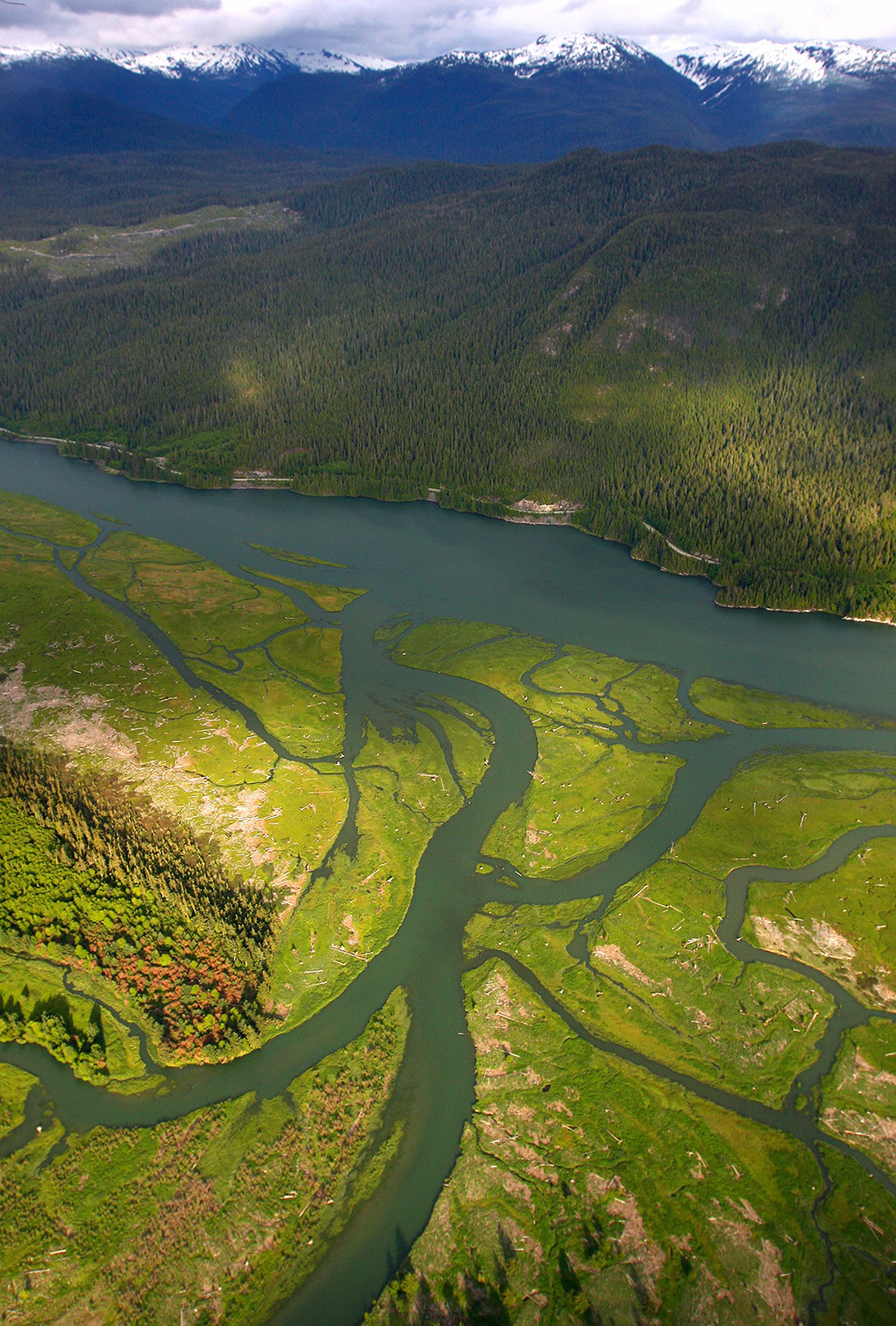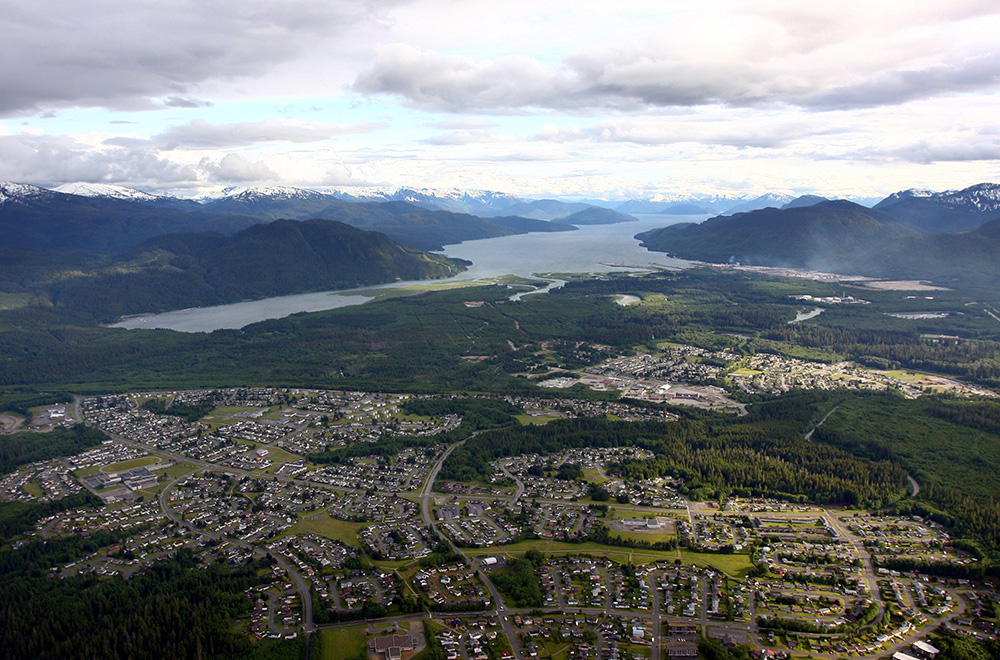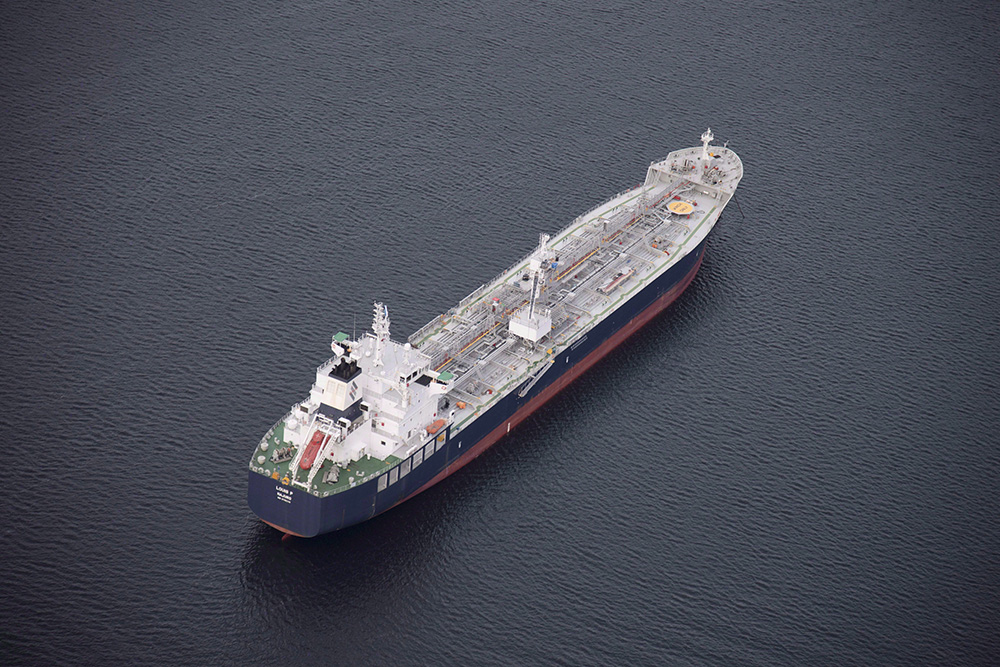A Conservative MP’s attempt to reverse a ban on oil tankers on British Columbia’s north coast was defeated in the House of Commons Wednesday.
But Skeena-Bulkley Valley MP Taylor Bachrach says the bill is a warning that a Conservative government would open up the coast to tanker traffic carrying diluted bitumen from Alberta’s oilsands and create pressure for more pipelines.
Discussion about whether vessels laden with crude oil should ply the waters off the north coast has been ongoing for decades. It includes debate over the existence of an informal tanker moratorium, outcry over the proposed Enbridge Northern Gateway pipeline and, finally, the passing of Bill C-48, a moratorium on oil tankers that appeared to put the conversation to bed two years ago.
But recently, as the oil and gas industry flounders and new U.S. President Joe Biden cancelled the Keystone XL pipeline project, pressure to get Canadian crude to tidewater has escalated.
Enter Bill C-229.
The bill, introduced a year ago by Edmonton Centre Conservative MP James Cumming, aims to repeal Bill C-48, which was passed in 2019 and prohibits tankers carrying more than 12,500 tonnes of crude oil from stopping at B.C. ports between the northern tip of Vancouver Island and the southern tip of the Alaskan Panhandle.
MPs defeated Cumming’s bill in a 208-118 vote Wednesday, with Conservatives backing the attempt to eliminate the ban.
But the NDP’s Bachrach said the vote shows the Conservatives are committed to opening the north coast to giant oil tankers exporting crude from Alberta.
“One of the things that this private member’s bill tells us is that the oil tanker moratorium and getting rid of it is a priority for the Conservatives,” said Bachrach, whose riding includes most of the coastline covered by the ban.
“If we did see a Conservative majority down the road, the oil tanker moratorium would be something they would want to repeal as quickly as possible. That’s of concern to a lot of people in our region.”
While legislation restricting crude oil transportation on the northwest coast may be relatively new, the fight to keep tankers out of the region isn’t.
The discussion has often focused on a 1972 moratorium put in place by then-prime minister Pierre Trudeau. Because the policy was never written into law, its existence is somewhat nebulous, akin to the northwest’s fabled sasquatch, with many wanting to believe while others deny it exists.
David Anderson confirms its existence. And he was there.
“It was not a formal Order in Council, but it was policy statement of the government at the time,” he said.
Anderson was a Liberal backbench MP for Esquimalt-Saanich when he persuaded Pierre Trudeau to announce a moratorium that would prevent the expansion of oil shipping on the entire west coast.
The effort was sparked by the construction of the Trans-Alaska Pipeline System, which was expected to bring two million barrels of oil down the coast each day in tankers. The moratorium was a way to pressure the U.S. government to avoid the Canadian coastline.
Anderson said the moratorium was widely accepted, except for some industry detractors.
“There was not a major concerted pushback such as there’s been, for example, with climate change,” he said.
While the policy was never passed into law, it presented “substantial obstacles” for anyone looking to export additional oil from the west coast, said Anderson, who would go on to serve as transport minister while MP for Victoria.
“It meant that any attempt to increase exports would be met with government resistance,” he said. “Now, you can always persuade the government to change its mind, just as you can persuade them to pass legislation overruling previous legislation.”
In 1985, Canada and the U.S. entered into a voluntary Tanker Exclusion Zone agreement that required tankers shipping oil from Alaska to the Lower 48 to stay 70 kilometres from B.C.’s coastline. It did not apply to tankers travelling to or from Canadian ports, according to Transport Canada.
But the original moratorium did, Anderson maintains.
That did not stop Enbridge, a Calgary-based multinational energy company, from proposing the 1,170-kilometre Northern Gateway pipeline that would cross northern B.C. carrying from the oilsands.
First announced in 2006, its proposed route closely followed that of the Coastal GasLink natural gas pipeline currently under construction.

But response to the two pipelines has been drastically different.
Opinions on Coastal GasLink have divided the northwest. The project, which will move natural gas to Kitimat to be liquefied, doesn’t present the same risks of a pipeline leak contaminating watersheds. However, the region was overwhelmingly opposed to Northern Gateway.
Northern Gateway proposed twin pipelines. One would carry gas condensate from the port in Kitimat to the Alberta oilsands, where it would be mixed with unrefined bitumen — a thick, tarry substance — to create diluted bitumen. The “dilbit” would then be shipped back to Kitimat for overseas export.
Fears over pipeline leaks and tanker spills united northwest communities against the project, which would have brought oil tanker traffic to Douglas Channel on the north coast for the first time.
Pat Moss, co-ordinator with Friends of Wild Salmon Coalition, first connected with the region while involved with an environmental coalition that participated in the West Coast Oil Ports Inquiry, a royal commission investigating the feasibility of a tanker port in Kitimat in the 1970s.
The inquiry was abandoned when Pierre Trudeau cancelled the project, but in a 1978 statement of proceedings commissioner Andrew R. Thompson conveyed widespread concern about the project. “These residents are not extremists. A great many ordinary citizens of this province are apprehensive,” he said.
During the more than 40 years since then, Moss has worked on numerous environmental campaigns in the region and said if there’s one thing that unites northern residents, it’s threats to wild salmon.
“There’s a lot of issues where the northwest has been quite united. Any proposed developments that have threatened the salmon have brought people together,” she said, noting concerns over the Kemano Completion Project, fish farms and development in the Sacred Headwaters, in addition to Enbridge Northern Gateway.
“In each of those, there was a very strong sense of ‘We’re in this together as a region.’ That’s kind of shifted with LNG,” she said.
The federal government approved the Northern Gateway project in 2016, subject to 209 conditions. But the Federal Court of Appeal overturned the approval, saying the government had failed to properly consult with Indigenous communities.
Prime Minister Justin Trudeau rejected the project later that year, and Enbridge has since said it has little interest in reviving Northern Gateway.
Both the town of Kitimat and the Haisla Nation, located at the terminus for Coastal GasLink and the now-defunct Northern Gateway pipelines, have voiced opposition to transporting crude oil through the region, despite strong support for LNG. In a 2014 plebiscite, Kitimat residents voted 58 per cent in opposition to the bitumen pipeline.

The Haisla Nation celebrated the decision to cancel Northern Gateway.
“Our Territory is open for business,” Haisla Chief Councillor Crystal Smith said in a statement following the pipeline’s cancellation. “We have an obligation to our people, however, to ensure that we only support businesses that are sustainable and do not pose insurmountable hazards to our natural environment.”
Smith confirmed to The Tyee that the nation’s position hasn’t changed. She says she recognizes that technology for shipping dangerous goods like bitumen is evolving, but until the Haisla can be ensured of their safety, oil tankers won’t be welcome in the territory.
“We’re not putting our environment at stake for any type of dollar amount,” she says.
Coastal First Nations, an alliance representing nine coastal nations, has also expressed “widespread opposition” to the Enbridge project and support for a tanker ban.
“All of our communities worked so hard together to see this passed into legislation and law. It’s something that we fully support as Coastal First Nations,” said president Marilyn Slett, K̓áwáziɫ, who is also chief councillor of the Heiltsuk Tribal Council.
Like Moss, Slett also took part in the West Coast Oil Ports Inquiry in the 1970s.
“An oil spill would destroy our cultural, ecological and economic values of the Heiltsuk territory,” she said. “We rely upon that to sustain us as people. That hasn’t changed, and we will always support the protection and preservation of the ecological values.”
In 2019, Kitimat Mayor Philip Germuth re-affirmed opposition to north coast tankers when a Senate committee held hearings in the region on the tanker ban legislation.
“Kitimat exists only because of industry. It was back in the early 1950s that the province of B.C. worked with the Aluminum Company of Canada to allow them to create a water reservoir for a hydroelectric facility to power an aluminum smelter,” Germuth told the Senate committee.
“In the whole history of Kitimat, there has only ever been one industry where the community, through a plebiscite, stood together and said, ‘Thanks, but no thanks.’ That was for the export of a persistent oil product.”
Germuth confirmed in an email to The Tyee that the community’s position has not changed in the two years since.
Ellis Ross, Liberal MLA for Skeena riding, was chief councillor for the Haisla when Northern Gateway was on the table and opposed the project in 2013.
But speaking before the 2019 Senate committee hearings on the tanker ban, Ross indicated the moratorium might be a step too far, unfairly singling out one industry and damaging the Canadian resource industry.
Ross said this week a similar project could succeed in the future. He credits the LNG industry with learning from the mistakes during Northern Gateway and paving the way for better consultation with First Nations.
“It’s a different context today. I think people are starting to really understand now what economy means to everyday life,” he said.
At the same time, Ross fears that cost and uncertainty could discourage the launch of future industrial projects in the region.
“I don’t think the question is whether or not we can say yes or no to oil and gas projects,” he said. “I think the question is, is there any investor out there willing to invest anything in the B.C. economy anymore in terms of oil and gas? I can’t see it. I think there are jurisdictions more open to that kind of investment that B.C. is.”
Jennifer Rice is NDP MLA for the North Coast riding to the north of Kitimat, which includes Prince Rupert and Haida Gwaii. She said there has never been any questions about where northerners stand on oil transport through the region.
“In the minds of the people that have lived here for a very long time, there has always been a moratorium in place. It’s just in a different form now, as of 2019,” she said.
“It’s interesting that Conservatives want to resurrect this issue every so often, but time and time again the people of the north coast have spoken, and I think they’re pretty adamant that they don’t want products like raw bitumen travelling up and down our coast, particularly in the Great Bear rainforest region.”
Rice added that she spoke with George Heyman, B.C.’s minister of environment and climate change strategy, to confirm that they both still oppose tanker traffic. Both supported the ban during the Senate committee hearings.
“I spoke about the fact that it’s a major food security issue for the constituents that I represent,” Rice said about the hearings. “A lot of them live in poverty and without access to healthy marine environment, without access to food, their survival is dependent on it.
“So, when I say it’s a real issue for people here, it’s a matter of life and death for a lot of my constituents.”
It’s a sentiment reflected in the West Coast Oil Ports Inquiry of the 1970s. “This inquiry involves what many residents of British Columbia see as life and death issues,” commissioner Thompson said in summarizing his report.
Slett, echoing her Heiltsuk Elders, agrees.
“In the words of some of our Elders that provided oral testimony at Namu with the oil ports inquiry 40 years ago, an oil spill would finish us.” ![]()
Read more: Energy, Politics, Environment

















Tyee Commenting Guidelines
Comments that violate guidelines risk being deleted, and violations may result in a temporary or permanent user ban. Maintain the spirit of good conversation to stay in the discussion.
*Please note The Tyee is not a forum for spreading misinformation about COVID-19, denying its existence or minimizing its risk to public health.
Do:
Do not: